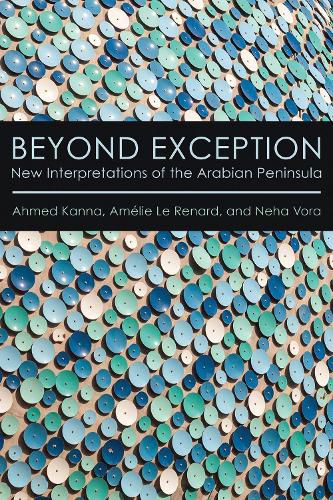Readings Newsletter
Become a Readings Member to make your shopping experience even easier.
Sign in or sign up for free!
You’re not far away from qualifying for FREE standard shipping within Australia
You’ve qualified for FREE standard shipping within Australia
The cart is loading…






Over the nearly two decades that they have each been conducting fieldwork in the Arabian Peninsula, Ahmed Kanna, Amelie Le Renard, and Neha Vora have regularly encountered exoticizing and exceptionalist discourses about the region and its people, political systems, and prevalent cultural practices. These persistent encounters became the springboard for this book, a reflection on conducting fieldwork within a field that is marked by such representations. The three focus on deconstructing the exceptionalist representations that circulate about the Arabian Peninsula. They analyze what exceptionalism does, how it is used by various people, and how it helps shape power relations in the societies they study. They propose ways that this analysis of exceptionalism provides tools for rethinking the concepts that have become commonplace, structuring narratives and analytical frameworks within fieldwork in and on the Arabian Peninsula. They ask: What would not only Middle East studies, but studies of postcolonial societies and global capitalism in other parts of the world look like if the Arabian Peninsula was central rather than peripheral or exceptional to ongoing sociohistorical processes and representational practices? The authors explore how the exceptionalizing discourses that permeate Arabian Peninsula studies spring from colonialist discourses still operative in anthropology and sociology more generally, and suggest that de-exceptionalizing the region within their disciplines can offer opportunities for decolonized knowledge production.
$9.00 standard shipping within Australia
FREE standard shipping within Australia for orders over $100.00
Express & International shipping calculated at checkout
Over the nearly two decades that they have each been conducting fieldwork in the Arabian Peninsula, Ahmed Kanna, Amelie Le Renard, and Neha Vora have regularly encountered exoticizing and exceptionalist discourses about the region and its people, political systems, and prevalent cultural practices. These persistent encounters became the springboard for this book, a reflection on conducting fieldwork within a field that is marked by such representations. The three focus on deconstructing the exceptionalist representations that circulate about the Arabian Peninsula. They analyze what exceptionalism does, how it is used by various people, and how it helps shape power relations in the societies they study. They propose ways that this analysis of exceptionalism provides tools for rethinking the concepts that have become commonplace, structuring narratives and analytical frameworks within fieldwork in and on the Arabian Peninsula. They ask: What would not only Middle East studies, but studies of postcolonial societies and global capitalism in other parts of the world look like if the Arabian Peninsula was central rather than peripheral or exceptional to ongoing sociohistorical processes and representational practices? The authors explore how the exceptionalizing discourses that permeate Arabian Peninsula studies spring from colonialist discourses still operative in anthropology and sociology more generally, and suggest that de-exceptionalizing the region within their disciplines can offer opportunities for decolonized knowledge production.